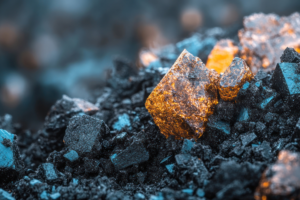News Corp (ASX:NWS): Now that Rupert’s baton will pass only to Lachlan, what will its future hold?

News Corp is one of Australia’s most controversial companies. Many may not know it is still technically listed in Australia on the ASX, even though its primary listing is in the US. How has it been going lately? And what will happen when Rupert Murdoch passes away and his son Lachlan will have total control?
What are the Best ASX Stocks to invest in right now?
Check our buy/sell tips

News Corp’s history
The current News Corp originated in 2013 whereby the media and publishing assets were split into two companies with the latter bearing its name. It traces its origins to 1923 when News Limited was founded, not by the Murdochs but by notable journalist James Edward Davidson.
Rupert Murdoch’s father Sir Keith first got involved in 1949 and Rupert took over following his death. At the time it was focused on owning several smaller daily and suburban papers, often taking them over when they were loss making but gaining popularity with tactics not too similar to today, although it established the Australian in 1964.
No stranger to controversey
Overseas expansion in the 1970s and 1980s and the infamous Super League was occured to gain subscriptions for its new pay TV business. What was arguably more controversial was its plans to introduce ‘super voting shares’ (i.e. shares with 25 votes each, just so the Murdochs could maintain control).
While the initial attempt in the 1990s failed, News Corp would ultimately be redomiciled to the US in 2004 and is listed in Australia as CDIs. The company said, as many do, that it made more sense because most if its revenues and investors were from there. Murdoch took US citizenship just to make this happen given laws banning foreigners from owning television networks.
It is incorporated in tax haven Delaware, but boasts its world headquarters in New York City’s Avenue of the Americas.
What it looks like now
News Corp describes itself as “a global, diversified media and information services company focused on creating and distributing authoritative and engaging content and other products and services.”
Of course it owns various news media (i.e. News Corp Australia), but it also has exposure to book publishing via HarperCollins) and information services (it owns Dow Jones & Company). It also has exposure to digital real estate (through its majority stake in REA Group (ASX:REA)). There was also Foxtel which it has long sought to spin or sell off, but had been unable to until recent when it was sold to Dazn.
In its most recent fiscal year (the year to June 30, 2025), News Corp recorded US$8.45bn revenues and US$648m net income from continuing operations. While the former figure was only up 2% from the prior year, the latter was 71%. Growth was driven by the Dow Jones segment (record revenues, growing digital & professional information business) and digital real-estate services (e.g., the Australian business).
Management’s tone is positive: they emphasise the growth of subscriptions, digital real-estate, higher-margin information services, and cost discipline. For example, they note the “AI age must cherish the value of intellectual property” – a dig at how Google has made itself into what it is by crawling through their sites for free and made itself the ‘go to’ rather than any individual outlet.
The company sees recurring revenue, digital growth and cost savings as major levers going forward. However, advertising revenues are under pressure and AI risks having an even bigger impact on consumer’s information pursuit habits than Google did. At least Google eventually gets some people to their website. People using ChatGPT just leave without giving a second thought to where the information is from.
Given the modest revenue growth but stronger profit growth as noted above, the company is transitioning to more stable, higher-margin areas (subscriptions, digital real-estate, professional information). But even these are not immune from competition and AI disruption.
The future
For many years, investors asked what would become of the company post-Murdoch. His favourite son Lachlan was long considered the heir-apparent, but this was no guarantee. The other children had differing views and could have had power to support it. In a key move, Rupert shifted to ‘Chairman Emeritus’ and put Lachlan in place as the boss.
Originally, it was intended that all four children would share power, but they lost it and ended up conceding after agreeing to receive US$1.1bn in a payout and would sell their holdings in News Corp and Fox.
The consolidation of News Corp under Lachlan reduces the risk of internal family power struggles (for now) but continues the existing voting structure that gives the family disproportionate control versus their economic stake — which remains a source of concern for outside shareholders.
Lachlan is perceived as aligned with Rupert’s conservative media strategy; that suggests continuity rather than major shake-up. But we won’t know for sure until Rupert dies, just how much power he still has. As with many other companies where power is consolidated around either the founder or their descendants, outsiders may still question whether the companies are optimally run for all shareholders or just for the controlling family.
It is also not irrelevant to note that even though Lachlan’s full siblings are out of the picture, his half-siblings (i.e. Grace and Chloe, Rupert’s daughters with his third wife) co-own Lachlan’s shares although not controlling them.
The more immediate term
Analysts’ mean target price for News Corp is US$36.60, up 37% from the current price of its US shares. Consensus estimates for FY26 expect US$8.7bn revenue, up from $8.45bn the year before, and $1.08 EPS (actually only half of the year before but this reflects certain divestments in the year before, particularly Foxtel). For FY27, $9bn revenue and $1.19 EPS. The company’s multiples are 25.6x P/E and 2x PEG.
The bottom line with News Corp is that it is a company that many investors will hate, will always be in the headlines for reasons other than its financial performance and one you will never have much control over as an investor given its dual-class share structure.
But if you’re looking at it just from a returns perspective, it is a different question altogether, one you need to put aside all of the above concerns to the side in order to come up with a balanced conclusion.
We wouldn’t invest in News Corp just because of concerns about the impact AI will have after seeing the impact Google had on its industry.
Blog Categories
Get Our Top 5 ASX Stocks for FY26
Recent Posts
Capstone Copper (ASX:CSC) Hits Record Production Despite Chile Strike: Is This Copper Giant a Buy?
Capstone Copper Achieves Record Production Despite Strike Capstone Copper (ASX: CSC) jumped 7% to AU$15.63 on Friday after the company…
1414 Degrees (ASX:14D) Surges 20% on AEMO Approval: Is This $9M Energy Stock a Buy?
1414 Degrees wins AEMO approval for Aurora battery link 1414 Degrees (ASX:14D) jumped 20% to A$0.030 on Friday after getting…


